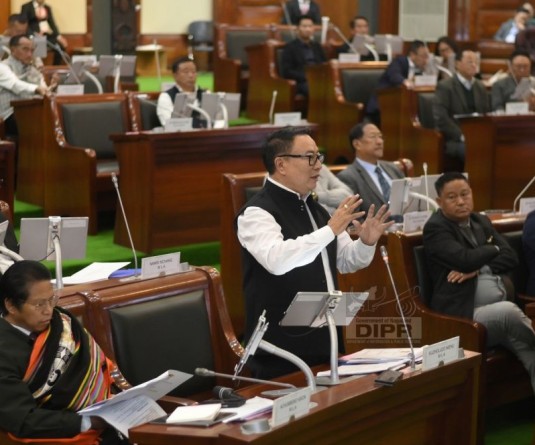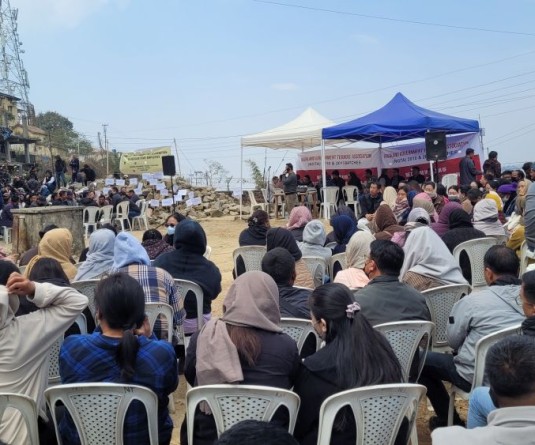
Dimapur, October 23 (MExN): In a development that is certain to boost local agro-based economy, the Nagaland Government, the Spices Board and corporate giant, ITC today entered into an agreement to develop export market for Naga chili and turmeric. A tripartite agreement was signed between the three in the office chamber of Minister of State for Commerce S Jairam Ramesh in New Delhi.
According to the agreement, organic chili will be procured and exported; species grown in identified areas will be marketed as organic species through appropriate certification by international accreditation agencies. The duration of the project is for three years and shall be subject to review thereafter. The agreement highlighted that ITC – in consultation with the Nagaland government – will identify an NGO or group of farmers for developing and extending organic cultivation of turmeric and chilies in the state. The identified NGO/group of farmers will be provided the required planting materials, training in Good Agricultural Practices (GAP) as well as post-harvest management including enhancing their awareness in all aspects relating to productivity, food-safety, quality requirement and marketability of the species produced.
After introduction of successful cultivation of the identified species and achieving a reasonable rate of production, ITC shall set up primary processing/packing units in the spice-growing areas. It will then undertake marketing of the produce to overseas and domestic markets.
The agreement emphasized on the role each of the three signatories is expected to perform. The state is expected to nominate a nodal agency to act on their behalf for implementation of the agreement. This can be the state agriculture/horticulture department. The state government shall facilitate identification of potential areas for the identified species along with potential farmers and SHGs, if required, to be involved in the process; facilitate services of the Agriculture University and other related research institutes or agriculture scientists; facilitate availability of required inputs and ensure that related subsidy/credit is disbursed to the farmers on time; ensure strict implementation of recommended practices of cultivation and post-harvest management through the services of representatives from the horticulture department or designated organizations.
The Nagaland government in consultation with the Spices Board is expected to ensure exclusivity of identified areas and assure the ITC that identified areas for pilot projects shall remain the corporate house’s exclusive involvement. Other parties shall not be permitted to grow, procure or set up similar facility in the same area for the notified spices, provided ITC achieves a reasonable scale of produce. The government shall make available necessary infrastructure like suitable land at nominal rentals on agreed basis, set up ‘buying centers’, provide security for ITC’s personnel, materials, processing and buying centers etc.
The role of ITC was highlighted in crop development, post-harvest management, farmers’ training, procurement of the produce, ensuring of quality and marketing etc. ITC shall work with various related agencies for introduction of cost-effective, post-harvest practices to enable preservation of product quality through minimization of post-harvest losses. The Spices Board will be the facilitator of the entire process acting as a guide, advisor and also work with the Nagaland government and ITC to make the project a success. It will facilitate subsidy for farmers across crop operations; coordinate organic programmes and coordinate project implementation. The signatory for Nagaland government was Commissioner & Secretary LH Thangi Mannen; VJ Kurian, chairman, for the Spices Board and chief Executive S Janardhan Reddy for ITC Limited.






